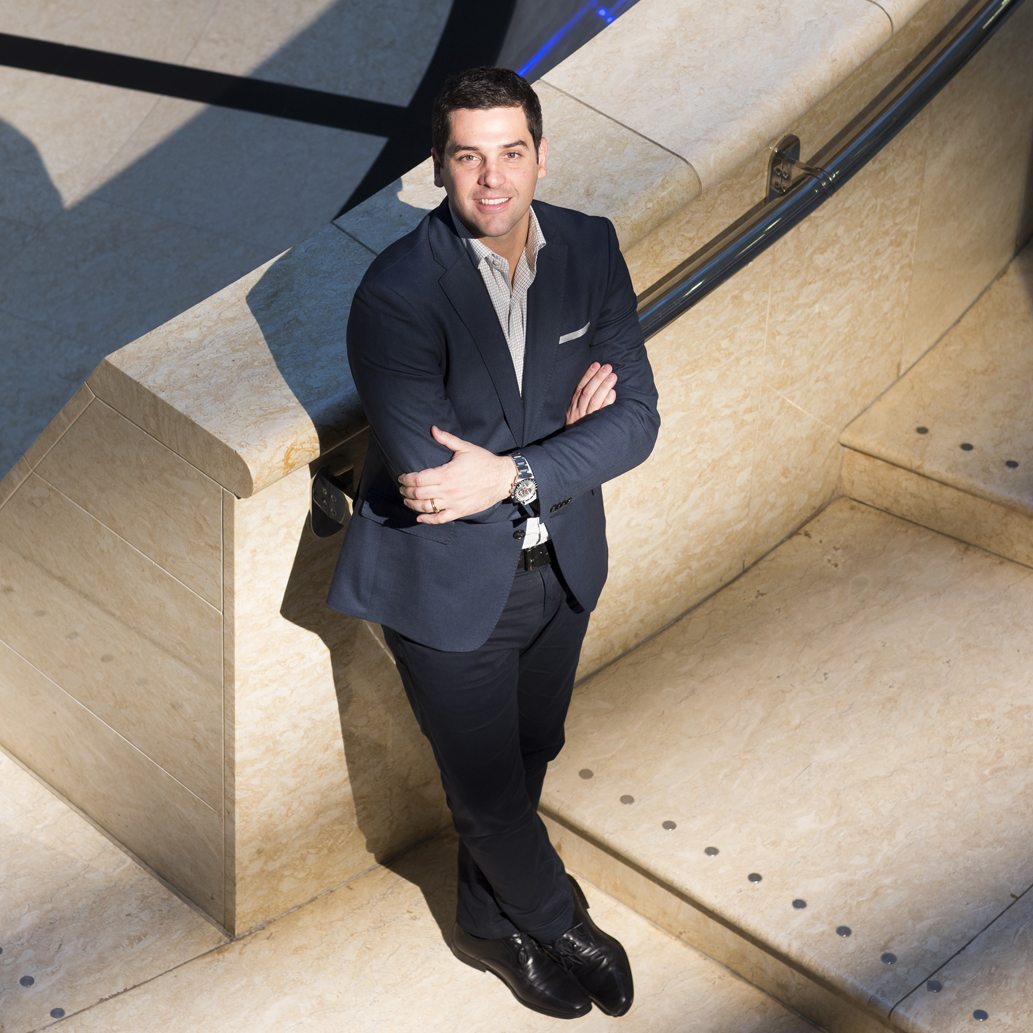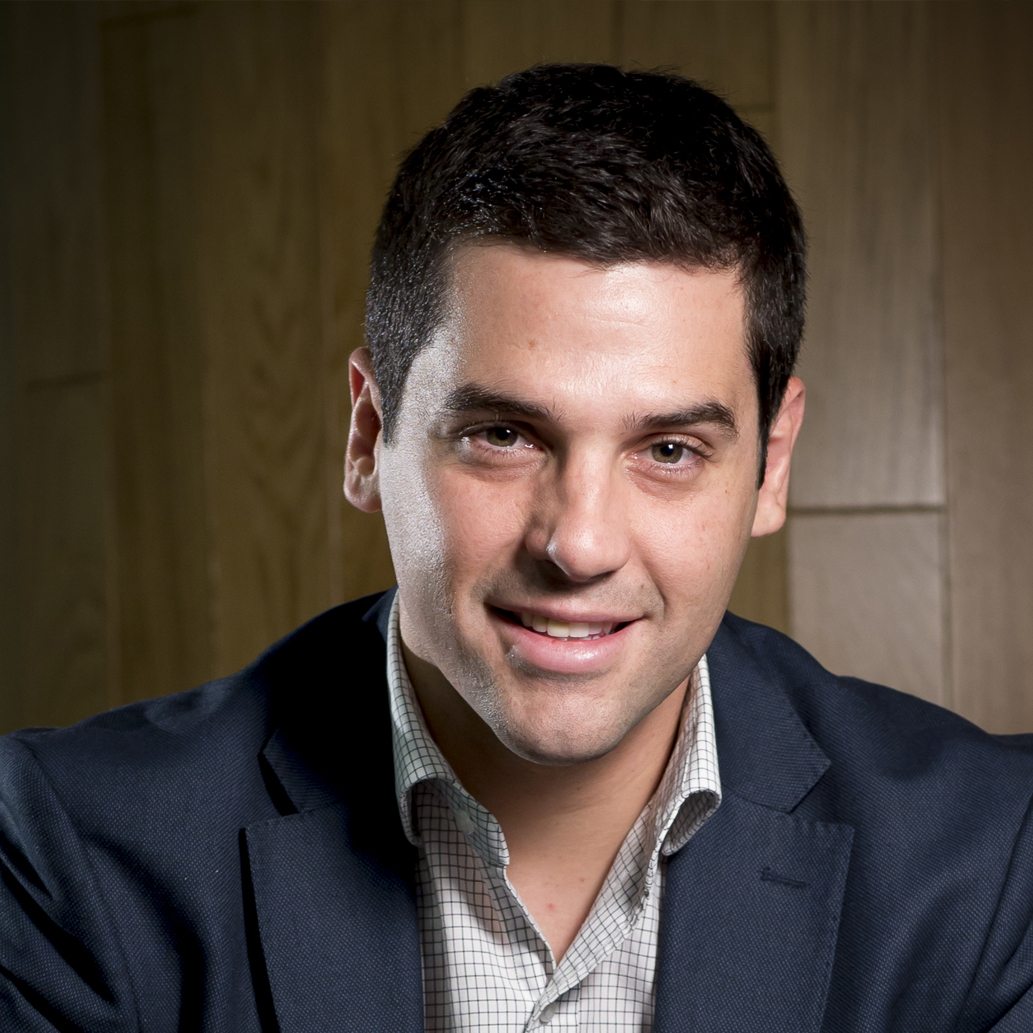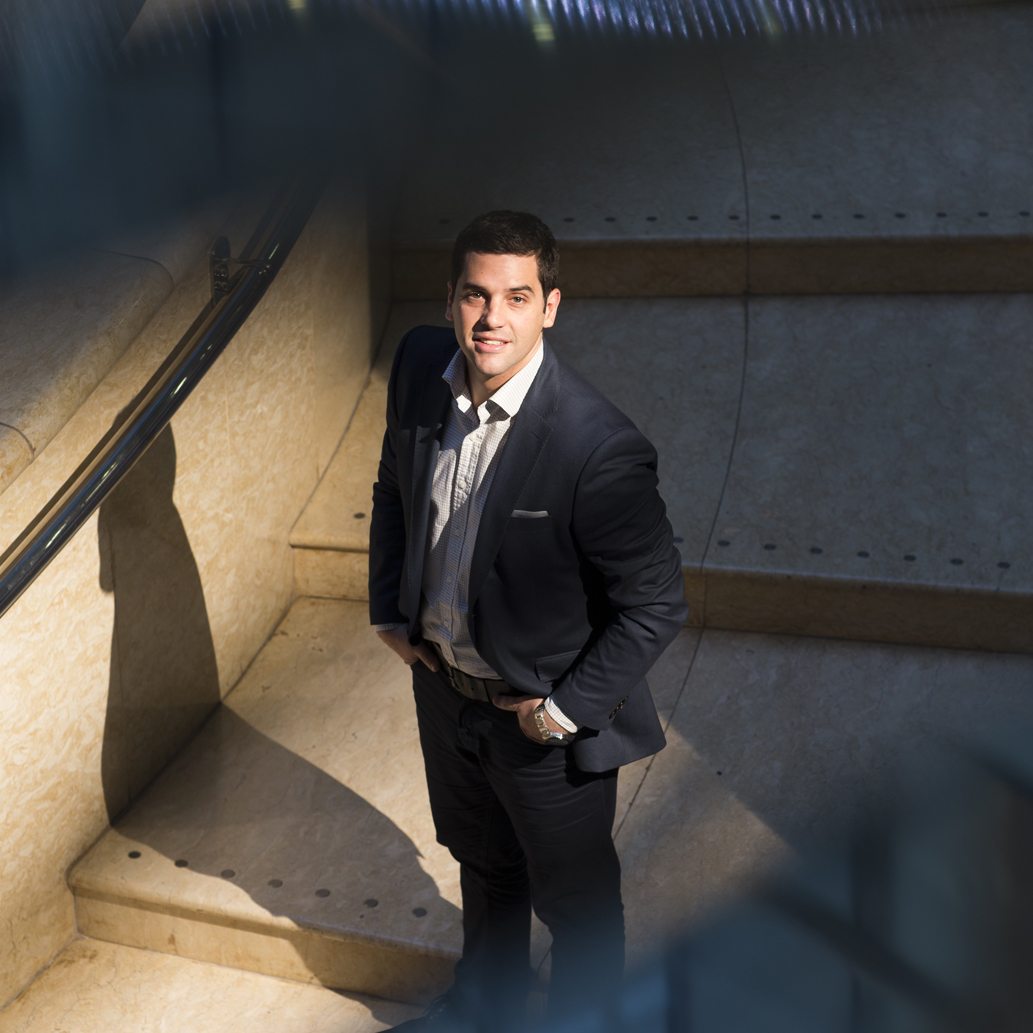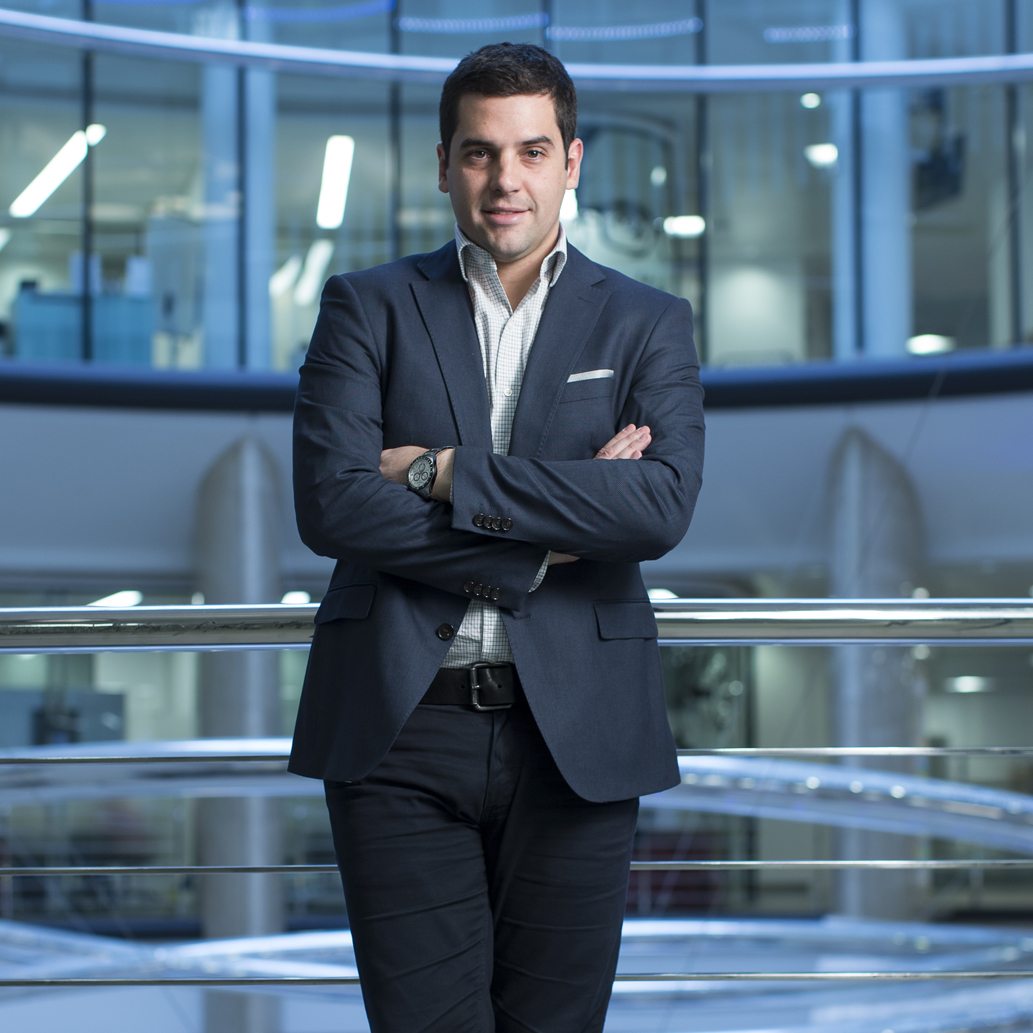Theo, give us an idea of your early life and how you got into Human Resources?
I started my working life as an intern in various companies in Brazil, and then got into the leadership programme for ALL (America Latina Logistica), one of Latin America’s biggest logistics companies. I was a trainee for a year, and worked my way up to take a business management role, not only gaining some useful leadership experience, but also unearthing a passion for helping to support and develop people. I was mixing with a range of different people and personalities, and experienced how, if you’ve got a good team of people, supporting each other, you can really make a difference. It sounds obvious saying it today, but I remember it was a revelation then. After a year-long trainee programme at ALL, which involved a number of roles in a corporate rotation, I became a business coordinator and continued to rotate through various departments including; iron, steel goods, containers and even the Argentina to Brazil transport route. I was then awarded management responsibilities, which proved to be very challenging tasks, as I was in charge of monthly revenues of up to one million dollars. This role helped me to develop my leadership skills and learn from other management mentors. After about five year years, I came across an opportunity with Burger King, a senior role in the HR division, I quickly applied and within a month, I became the Director of People at Burger King EMEA. I was daunted, shocked but also fascinated by the scale of the job, and the huge variety of tasks and responsibilities that this department takes on. There was no option but to dive in and immerse myself in the heart and culture of the business.

The difference to your previous appointment, is obvious. That in itself must have taken a lot to get used.
You would think so, but surprisingly, both of the companies I have worked for have similar values and environments; and the people and the talent they possess are at the core of the company ethos. Plus I learnt that the HR role is primarily about looking after the employees and the importance of having a meritocratic structure, and this is a lesson which I have brought to my role here. We have five core company values which permeate our everyday lives: Meritocracy, Accountability, Fun, Being Bold and Responsibility. Employees are rewarded on a meritocratic basis, that is, if they work hard and deserve to be promoted, they will be. This is obvious at all levels of the employee base, and even interns and participants of our Leadership Development Programme are given ownership of real-life, business critical projects, to encourage their growth and prepare them to handle the real challenges that face our business, whilst also trusting them with the accountability for their actions. Primarily, working at Burger King should be fun and this comes across not only in our work life but also our brand representation in the public sphere.

Give us an idea of what was expected of you in the early stages, and about Burger Kings plans, aspirations, and what HR is responsible for, to meet the demands and needs of resourcing the projected plans of the business?
Burger King’s vision is to be the most profitable Quick Service Restaurant business. We deliver our brand vision by serving the best burgers in the world through our strong franchise system and the great people we hire. In HR, our main responsibility is to find talented people and make sure they are properly developed. Once they join the business we have to make sure that our retention level stays high. To be the most profitable QSR business we need to make sure we employ the best people and therefore, we need to make sure employees are constantly given the chance to grow and develop their skills and abilities. In the HR department we place a high level of importance on having a strong development plan, as we want to be able to promote people up through the company. We like to promote people internally for management positions so they have a better understanding of how the business works and business targets can therefore be met more easily.

So of course, recruitment is key, how do you attract talent into the various different departments and how do you operate such a large scale recruitment plan and still make sure you get quality people in the right jobs?
We have a clear message that we continuously communicate during our recruiting. We want to attract hungry talent who are ambitious and ready for the challenge, to develop an international, successful career working for a global, iconic brand. During the interview process, we stress the environment of constant development that we provide and how much we care about the members of this family, and a big draw is, this being an international brand, people have the opportunity to grow at a fast pace, as they are given meaningful projects straight away.
When we make hiring decisions, we’re looking for people with an ownership mentality that we can develop. Our long term recruitment plan is to foster promotions and develop from within. We bet on the people that we hire and give them all the necessary tools and resources to help them develop and grow to take positions of high responsibility and leadership. That’s how we make sure we get quality people in the right jobs; we try to promote within our company for management and leadership positions. To ensure that employees are on the right track we have continuous feedback sessions, both formal and informal, to measure the performance of employees. We also have a ‘BK University’, which offers in-person and virtual courses to help employees develop skills such as; problem solving, project management, and how to master computer programmes like Excel. We encourage our employees to push themselves to reach new limits to allow them to grow to higher positions of responsibility faster.
So the Madrid HQ is responsible for HR across the business?
Yes, while we have corporate offices in Munich, Slough and Zug, all the HR team is based at the EMEA headquarters in Madrid, Spain. All HR-related decisions are made with the support of the executive team as well as department heads and regional leadership teams. The business is performing strongly in EMEA and our teams are growing as a result. Earlier this month, we reported our 15th consecutive quarter of comparable sales growth. We continue to enjoy growth in established markets like Turkey, United Kingdom and Spain as well as early success in younger markets like France and Russia. Globally, the organisation is now established in 100 countries with nearly 14,000 restaurants around the world.
How does Burger King choose and monitor its third-party suppliers and partners, to make sure they attain the standards and values that the business aspires to?
We commit to sourcing products that meet our high quality standards and constantly review and evaluate our supply chains to ensure they meet these tough targets. We make sure that we run processes that are transparently viewed by our customers; so that they are able to see our efforts, and the operations teams communicate effectively with third-parties, so that they are kept aware of all business principles standards and values that they should adhere to, to ensure that they are in keeping with the brand. The organisation strives to take a responsible approach to the environment throughout all our EMEA restaurants. Environmental awareness is an essential element of growing the brand and business. We know that sound waste management is an essential element in maintaining the health of our cities and neighbourhoods. We are continuously working with our suppliers to assess ways we can reduce, reuse and recycle our equipment and packing in a way that is suitable for all the different sizes and locations of our restaurants.
How is the business perceived as an employer brand?
When people think about the Burger King brand they typically think of the restaurant, and are truly unaware of the corporate background that is attached to it. We want to improve and develop our employee branding and the drive to work for us, and are implementing various tactics to make this happen. We have a dedicated career website that portrays our energy values and what a career at BKC entails. We also have the Leadership Development Programme which is an accelerated corporate programme aimed at hiring young talent with ambition and an ownership mentality, to develop and nurture, by giving them access to all the necessary tools and resources to become the future leaders of the company. We’ve also visited and directly built relationships with over 20 universities around Europe, to build awareness of the employee benefits and proposition we offer. Burger King would like to be perceived as a fun, ambitious international brand, which has the energy of a start-up and provides fast-track careers for those who earn and deserve it.
You've talked about ownership as an engagement driver, and the outlets being franchised, this must contribute considerably to that. But are there disadvantages and challenges to this too? The fact that outlets have their own hierarchy, does this pose difficulties with the operation?
As you say, the more ownership we divulge, the more responsibility we give to the other party, be it a franchisee or an employee, and therefore it’s imperative to run a tight ship to mitigate risk. For example, at one point, we identified that there was a need to improve the communication between BKC and the franchisees. As a result, we created the role of a ‘Franchise Business Leader’. The FBLs are responsible for the effective operations of the franchises and the implementations of the latest products, machinery, and the overall day-to-day operations and business.
What about training and development, how is this achieved over the various territories, to make sure everyone is on the same page with things like; health and safety and hygiene for example?
In restaurants, the franchisees are responsible for training their staff, and the corporate team provide franchisees with all the necessary tools and resources to do this effectively and in a standardised manner. The Franchise Business Leader ensures that the franchisees are kept up to date with the latest information from BKC. We have also created the BK Guru, a new online training system that promotes development by restaurant-level employees. At the corporate level, we have both formal and informal methodologies for training and development. For all employees in EMEA we have a 360 degree review and feedback system to evaluate the performance of an employee on a weekly and monthly basis. To give an example, to make sure we have standardised training for the corporate employees, we have just conducted ‘problem solving methodology’ training for all EMEA employees. Everyone receives ‘on the job training’ as we believe that this provides the most effective and fastest method for development and learning.
Where would you say you are on that journey?
As an employer Burger King weaves meritocracy into the very fibre of its culture. It provides a performance driven environment that rewards top performers. If you are talented you will be successful: you’re career will accelerate at the same rate as your talent acquisition and development. Employees are also able to move between the teams in order to explore new areas of the business and therefore broaden their horizons. Flexible working hours and the option to work from home are benefits that are available – we want to ensure that our employees are able to perform to the best of their ability in the environment and hours that suit them. Our growth as a brand provides new opportunities on a daily basis. The working environment can quickly change and therefore our employees need to adapt and grow. Our popularity as a brand is obvious in the number of candidates we regularly have for new positions. Last year for the Management Trainee Programme we had over seven thousand applicants – the quality of the training we offer and the amount of opportunities provides a real appeal to prospective applicants.
This sector has had its fair share of negative media interest, the impact on the environment and also health issues, how does BK answer such criticisms and what is the business doing to improve its carbon footprint, and also in relation to its customer proposition?
BKC is committed to making sure that we minimise our environmental impact, especially the ones which are a challenge to our industry: energy, waste, water consumption and emissions. We constantly examine the efficiency of the equipment we use, the energy we consume and how we dispose of waste. We are analysing and studying sustainable restaurant designs, packaging and supply chains to learn how we can improve. This information is helping us make smart and informed decisions that will benefit our restaurant guests, our environment and our business. With regard to health, we make sure to offer guests a variety of choices. We have a vast range of products to suit any individual lifestyle need, including health-conscious guests. For example we have salads, wraps, smoothies and smaller portion burgers.
What about the rollout, in terms of setting the business up for the future, what are the future plans?
We’re continuously seeking to reach out to our customers in more ways, whether through new restaurant openings or creating online conversations. We consistently look to penetrate new markets, and we listen to market trends and requests so that we can adapt to customer demands. We also constantly review our processes and procedures to ensure we operate as soundly and effectively as possible. Innovation and profitability is a core value for BK and this permeates our strategy and plans throughout.
What are the platforms of communication for employees, in terms of awareness of the business?
We work diligently to keep employees at all levels informed about business objectives, performances and changes that are occurring. To achieve this we have multiple tools in place that allow us to reach our employees, regardless of their location. Our internal website, the BK Gateway, allows employees to find out about latest restaurant openings, franchisee news and financial figures. We also send out monthly newsletters directly from global, to ensure that the company feels unified and aware of the all-encompassing company goals. We also make sure that we check in with employees semi-annually, through our employee engagement survey.
With such a disparate workforce, I should imagine you lean on HR data and metrics a great deal to gauge performance and also use this information to make changes, improve the operation and also how it feeds into planning.
You’re right, numbers are very important to track progress, however; these are secondary for us in comparison to an employee’s cultural alignment, overall motivation and potential. We can use numbers to ascertain not only an employee’s performance but also their satisfaction and where we can improve. We are looking to grow as a company, and therefore we use the data available to progress and evolve but individual feelings are also key. Our workforce is not a number but an individual and an individual’s needs and emotions are more important than a number on a survey.
So what has the data been telling you, in terms of the status and performance of the operation and the business?
As you can see from the earnings statement we released earlier this month, we continue to perform strongly in EMEA. That strength comes from the great, committed people who support and drive the business every day, and they are rewarded through internal promotion. We aim to prepare junior members to take leadership positions as soon as they become available. We try, as far as we are able, to promote from within. If an individual has shown the drive to grow the business they are rewarded, and this policy has benefitted the company through its gaining in profits.
And that works well for attrition, retains talent?
Yes, people become loyal to the brand and want to grow their career through the business. It is human nature to have a positive affinity with a company that trusts their ideas in a project. If these prove to be successful and they are rewarded for their efforts, then they will strive to implement more. This is the culture we encourage at Burger King – we look for employees who are hungry to grow and learn, and therefore go that extra mile. When you become an employee of BKC, you can see that others are rewarded for their hard work and therefore this, matched with the fast paced environment, influences you.
What would you say are the biggest HR challenges of the next stage of the business?
I would say we should never get complacent about HR – one of the main roles HR plays is to recruit great people, especially as our business expands in size. As Burger King employees are growing and developing, they are reaching new positions of leadership. With this in mind, I would say that one of our greatest challenges is to keep this talent machine rolling.










